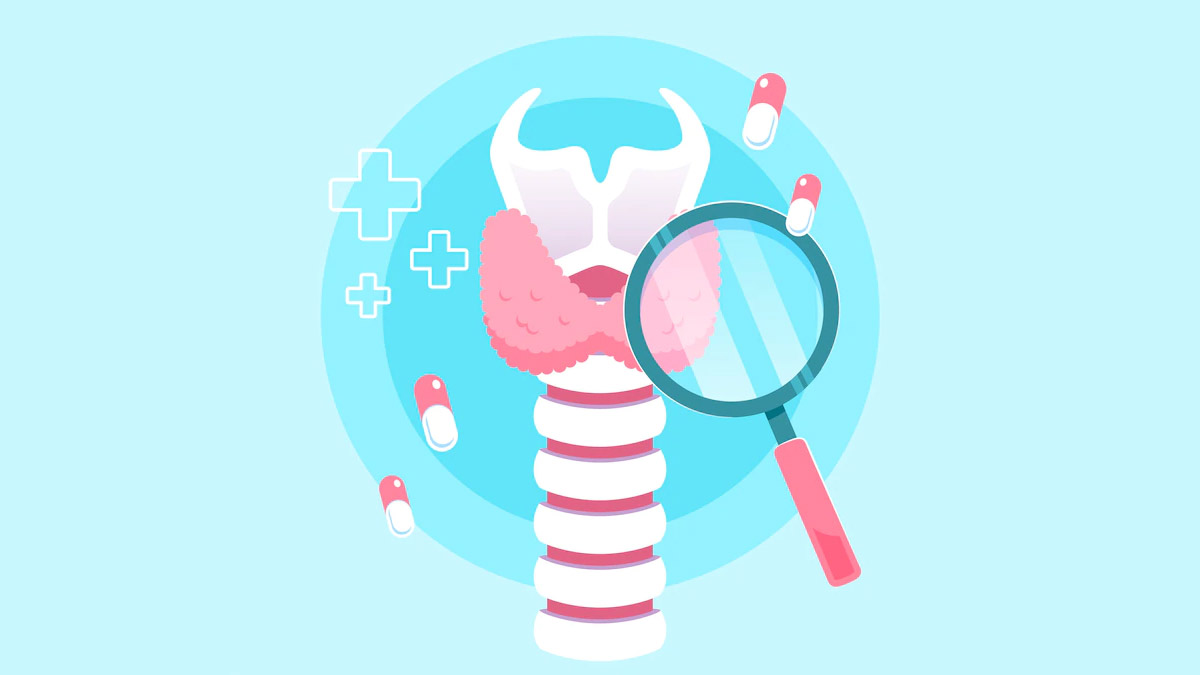
The thyroid gland is a tiny organ in the front of the neck that wraps around the windpipe or trachea. Its shape resembles a butterfly, with two broad wings that wrap around the side of your throat. Your thyroid gland produces hormones that aid in the regulation of many important functions of your body. When your thyroid gland is not working properly, it might have an effect on the rest of your body. There are two types of thyroid disease. Hyper and hypothyroidism. Hyperthyroidism occurs when your body produces an excessive amount of thyroid hormone. Hypothyroidism occurs when your body produces inadequate thyroid hormone. Both are potentially fatal and should be managed by your doctor.
Table of Content:-
In an interaction with OnlyMyHealth, Dr. Chhavi Agrawal, Associate Consultant, Endocrinology, Fortis Escorts, Okhla Road, New Delhi, talked about the myths related to the thyroid.
Debunking Myths About Thyroid
Thyroid diseases are one of the most common hormonal problems encountered in clinical practices. The most common myth associated with thyroid diseases is about diet.
There is no particular thyroid diet that will help a patient to normalise their thyroid function without medication.
There is a common myth regarding avoiding the consumption of vegetables from the Cruciferae family, like cabbage, for hypothyroid patients.
Also read: Dietary Guidelines By Expert For Weight Loss in Thyroid Patients
Consuming any vegetable in moderation is acceptable for all thyroid patients. Another misconception is that a gluten-free diet does not help in treating thyroid diseases.
A lot of obese hypothyroid patients attribute their obesity to hypothyroidism. The weight gain due to hypothyroidism is usually around 4-5 kg, and the patient loses this weight once the hypothyroidism is corrected with medicines.

Another worry is a lump in the thyroid is cancer. Only about 5-10% cases of thyroid nodules are found to be cancerous.
A lot of people tend to think that the thyroid is more common in the female population, but the fact is it does occur in males also, and the severity of thyroid diseases is usually more in males than in females.
Thyroid medications are also being used for weight loss and in energy supplements as thyroid hormone is considered to bring weight loss in hypothyroid patients and improves the quality of life.
While it's essential to treat these patients with an appropriate dose of the hormone, treatment in normal individuals has a lot of side effects and should not be done.
Also read: Hypothyroidism: Diagnosis And Treatment
Who is more likely to get thyroid
Thyroid disease can affect anyone, including men, women, newborns, adolescents, and elders. It may be present at birth or develop as you become older often after menopause in women. You are more likely to acquire a thyroid issue if
- You have a family history of thyroid illness
- Have a medical condition (e.g., pernicious anemia, Type 1 diabetes, primary adrenal insufficiency, lupus, rheumatoid arthritis, Sjögren's disease, or Turner syndrome).
- You are over 60, particularly in women.
- You have been treated for a thyroid problem or cancer (thyroidectomy or radiation therapy)
Also watch this video
How we keep this article up to date:
We work with experts and keep a close eye on the latest in health and wellness. Whenever there is a new research or helpful information, we update our articles with accurate and useful advice.
Current Version